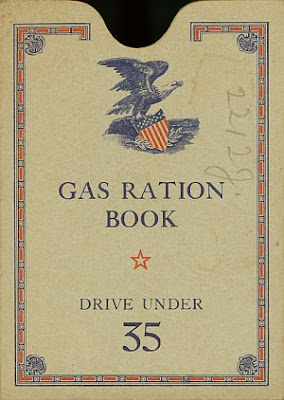As life returned to normal after the war, and the abundant American lifestyle returned, family feuds and grudges were pushed below the surface at 13 Liberty Street, and the backyard once again became a joyous place. For children, adults, and child-like adults.
Uncle Luigi Ritorno (we were never allowed to call him Lou, or Louie) was an interesting case. He had been born in American, but, like many Italian families that were split between the new and the old world, the young were often sent back to Italy – either because there wasn't enough income to support them here, or because their labors were needed over there.
The Ritorno family owned a small olive grove and press somewhere in Calabria, near the “toe” of the Italian boot, and was brought back there when he was only a couple of years old, presumably to be brought up to be educated in the family business. So he grew up learning only Italian.
Before he was able to put his knowledge of the olive oil business to good use, however, the family lost their land, and he was forced to re-emigrate to the US, the land of his birth. But, returning to Troy as a teenager in the 1930's, he was one of those rare natural-born Americans who couldn't speak a word of English.
As a result, the little American English he did learn to speak was fractured almost beyond recognition, and he wasn't able to secure employment equal to his Italian training. He ended up having to settle for menial jobs, as a janitor in local factories, and as a busboy in local restaurants to supplement his meager day job earnings. And he didn't do much to debunk the Italian belief that the Calabrese are hard-headed.
Poor Uncle Luigi. Marrying into the Case family didn't improve his lot in life. The men in the family, victims of discrimination themselves outside Little Italy, now had someone in their own enclave on Liberty Street to take it all out on. Luigi became the butt of frequent practical jokes.
Later in 1948, it would get even worse for him, when a popular new radio comedy would debut about Italian immigrants trying to learn English. It was “Life with Luigi,” with an Irish-American actor named J. Carrol Naish caricaturing Luigi, and Alan Reed, later the voice of Fred Flintstone, playing his Italian landlord.
I remember The Case men playing a game called “Boss and Underboss,” and using it as a way to tease our Luigi. Following a series of bocce or pinochle games, the captain of whichever team won would be the “Boss,” leaving the captain of the other team as the “Underboss.”

They would empty a quart of Stanton's lager, from the brewery around the corner, into as many glasses as it would fill, and begin. It was over before the heads on the beer disappeared, but despite its speed, the game was intricate and entertaining to a little boy. And as I reflect on it, it was educational, too.
The Boss would open with a proposal, directed at the Underboss. “A glass for you and me, and a glass for all the members of my team,” he might say. He knew this was unacceptable of course, and the Underboss would make a counter-proposal. “A glass for you and me, and a glass for two of my team and two of yours.” A counter-counter proposal from the Boss would follow, and so on, with a little give here and a little take there, until, as I recall, everyone had a glass of beer in front of him except Uncle Luigi, who would rant and rave in his broken English as the rest quenched their thirst. Alternately, they would cruelly force him to drink the entire quart himself, and then tease him for being drunk.
Luigi always got to drink a normal amount eventually, of course, but he was singled out because they all knew that his frustration would always result in some outburst. When he had “gone dry,” they'd open another bottle, he would drink, and all would be forgiven. Until the next time.
Uncle Luigi loved to dance, especially the Italian folk dance called the tarantella – supposedly named after the gyrations that a victim of a spider-bite would be forced to undergo.
One late spring Saturday in 1948, when the family was gathered outside, enjoying a rare day of leisure, Vincenzo, my father's bachelor brother, the family prankster, played a different kind of trick on Luigi. Using a long extension cord, he set up a record player on the back porch, to provide Italian background music for the family. Luigi began dancing to a lively tarantella.
People were clapping and cheering, and Vincenzo took advantage of that to quickly lift the needle and place it back near the beginning of the record. He did this several times, until Uncle Luigi, gasping and sweating and finally realizing that this was the longest song in history, caught Vincenzo in the act.
Wiping his brow and plopping down on the cobblestones where he had been prancing furiously, he looked accusingly at his brother-in-law and uttered what has become the family motto:
"You thinga somebody don't know somathing? Somebody knows somathing!”
The laughter was cut short when the mailman came through the gangway into the backyard with a special delivery letter for my cousin “Coke,” the jeep driver in WW II.
He tore open the official looking envelope and gave us all the news – he was being called up to use his driving expertise on German runways, to help support the Berlin airlift.
©Copyright 2010 Frank LaPosta Visco
Next: The new priest fills the gap.



